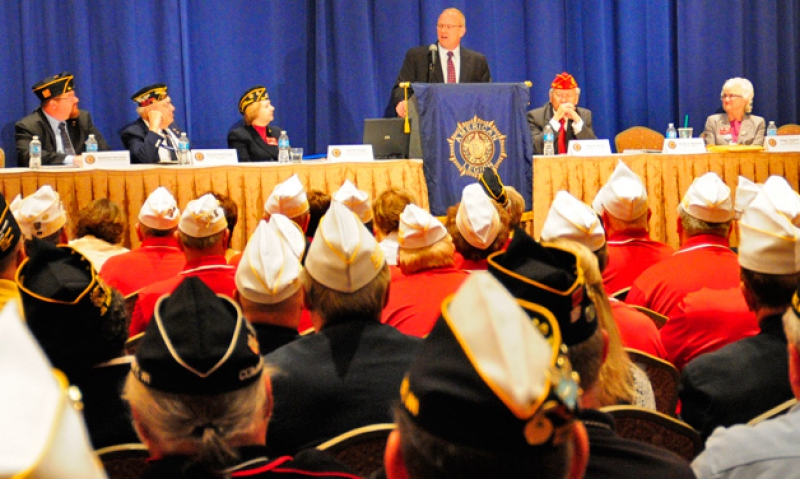
Retired Army colonel tells Legion that the newest generation of veterans has the opportunity to shine... with a little help.
David Sutherland spent 29 years in the Army, retiring as a colonel. One of his roles during his service was special assistant to the Chairman of the Joint Chiefs of Staff, with a primary focus on Warrior and Family Support.
In the civilian world, he maintains that same focus today. Sutherland has teamed up with former U.S. Navy Lt. Cmdr. Kim Mitchell and Easter Seals to develop a nationwide network of collaborative, community-based services and supports for military servicemembers, veterans and their families.
Sutherland spoke briefly about that partnership while addressing The American Legion National Membership Workshop on Aug. 3, but spent the better portion of his presentation talking about the sacrifices and challenges servicemembers face – especially those seriously wounded – when they return home.
“I’m an advocate and mentor for 2.3 million men and women in uniform,” Sutherland said. “I’m an advocate and a mentor for (the) 1 percent of the population brave enough to wear the uniform, our families and the families of the fallen.
“There is no other employee in the world that guarantees their job with their life. These are your men and women in uniform, and they just need a little help as they transition and reintegrate. They will thrive.”
Sutherland credits a previous generation of veterans with what today’s servicemember has been able to accomplish and said there is one major similarity between the two.
“We are successful on the battlefield today because of what we learned from our Vietnam veterans,” he said. “And we can talk about challenges when we come home because of what we learned from our Vietnam veterans and the sacrifices they made for us. And it’s the understanding that this generation of veterans is wired to serve – just like every other generation. They just need a little help during transition and reintegration. I’ve seen greatness on the battlefield, and I’ve seen a capacity for greatness when they come home.”
Awareness of and access to health-care benefits is among the needs of the newest generation of veterans, but Sutherland said that’s just one part of it. “Every need and opportunity has to be looked at in a holistic approach, a wrap-around approach of education, meaningful employment, access to health care,” he said. “Education – not just getting them into school... but enabling them to get to graduation. That recognizes their skill sets, and gives them credit for the service and training before they go to school, so as a truck driver who’s driven thousands of miles in Iraq and Afghanistan in a commercial rig is not told when he comes home to Illinois that he has to go through truck drivers school from Day 1.”
Sutherland praised his audience for their efforts in this arena. “What The American Legion is doing on credentialing and licensing needs to be recognized by the entire country... because you’re fighting for those who have served,” he said.
Taking the same old approach won’t work with this group of veterans, Sutherland said. “Cookie-cutter solutions focused on the greatest common denominator is what destroys innovation,” he said. “Innovation and flexibility for the needs of this generation of veterans comes from individuals in this room and the greater society. From the civil sector. They just need a little help. And understanding.”
- Membership

